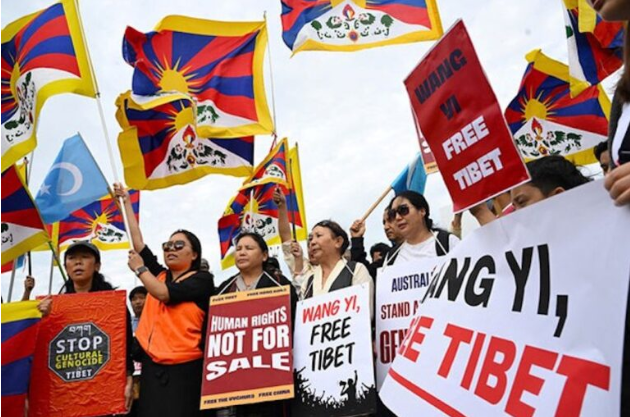
Fifteen countries raised concerns over China’s human rights abuses in Tibet and East Turkistan during a session at the United Nations General Assembly’s human rights committee on Tuesday in New York City.
Leading the joint statement, Australian UN Ambassador James Larsen called on China to honor its international human rights commitments and implement UN recommendations stating, “We urge China to uphold the international human-rights obligations that it has voluntarily assumed, and to implement all U.N. recommendations. This includes releasing all individuals arbitrarily detained in both East Turkestan and Tibet, and urgently clarifying the fate and whereabouts of missing family members.”
Ambassador Larsen also called for the need for transparency in China Stating,: “Transparency and openness are key to allaying concerns, We call on China to allow unfettered and meaningful access to East Turkestan and Tibet for independent observers, including from the U.N., to evaluate the human rights situation.”
A United Nations report from February 2023 stated that around one million Tibetan children in Tibet were being impacted by Chinese policies aimed at assimilating them culturally, religiously, and linguistically through a residential school system. Two years earlier, a U.N. report had concluded that China’s detention of Uyghurs and other Muslim groups in East Turkestan (Ch. Xinjiang) might constitute crimes against humanity.
Larsen further criticized China’s response to the U.N.’s concerns, stating that instead of addressing them, China had rejected the Office of the High Commissioner for Human Rights’ findings as “illegal and void” during its Universal Periodic Review adoption in July. He highlighted issues faced by Tibetans, including restrictions on political expression, erosion of language, culture, and religious rights, and limits on travel.
China’s representative at the UN Fu Cong rejected these accusations, characterizing them as an attempt to “weaponize” human rights issues for political confrontation.
The Australian Ambassador spoke on behalf of Australia, the United States, Canada, Denmark, Finland, France, Germany, Iceland, Japan, Lithuania, the Netherlands, New Zealand, Norway, Sweden and Britain.